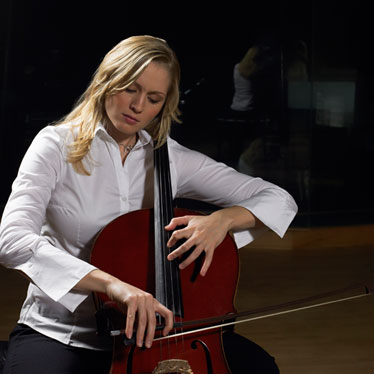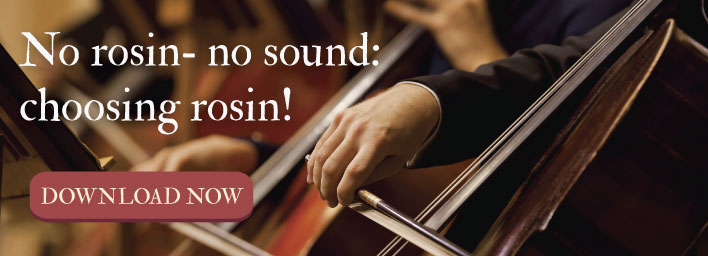What Does New Music Mean For My Music Career?

For all you budding composers out there, your career path may take you into the realm of “New Music” by definition. While there aren’t strict definitions of what qualifies as new music, one universally accepted criterion that qualifies any music as new music is its date of composition. So if you’re composing now, you’re composing new music.
For others – musicians and music professionals, you may wonder what New Music means for you. Well, it depends primarily on where your artistic instincts are currently taking you. When thinking about New Music from a substantive perspective, as opposed to strictly temporal, it allows for works that build off the classical foundation as well as those that depart from it entirely.
So there is literally room for everybody making it inevitable that you can probably find New Music to your tastes and artistic aspirations, even if there’s much of it you decide doesn’t speak to you. Of course, to make these decisions, you have to jump into the New Music world to see what’s going on.
Use these suggestions below as starting points for your own exploration into New Music.
New Music Festivals
Festivals can serve as quick survey courses of what’s out there now. Like many music festivals, they also offer talks, master classes and volunteer opportunities. Thus, you can attend to simply listen to new works or really dive into the world. Here are three to check out:
- Biennial Festival of New Music: This New Music festival is sponsored by Florida State University’s College of Music and is held every other year. The most recent festival was in 2017, so you’ll have to wait a bit to attend the next one. In the meantime, you can check out its last program to get a taste of composers and compositions.
- Cabrillo Festival of Contemporary Music: This Santa Cruz, California-based festival describes its mission as “re-imagin[ing] the orchestral experience–advancing music and developing audiences for the 21st century.” You can get an in-depth look at its most recent festival through its program book.
- Queens New Music Festival: Right in New York, this festival is done under the auspices of Random Access Music (RAM). It has a very local focus, but the breadth and depth of the music world in New York City provides rich ground indeed.
New Music Composers
Hardly a comprehensive list, but here’s a taste of New Music composers that run the gamut of what you can find.
- Ladislav Kubík: A Czech-born composer, Kubík is a professor of composition at Florida State University and active composer who reaches back to create new conceptions of classical forms.
- Gabriela Lena Frank: Another New Music composer whose works have roots in classical composition, Gabriela has an interesting background of a Lithuanian-Jewish father and Chinese-Peruvian mother. She brings non-classical Western musical styles into her compositions, such as with “Leyendas: An Andean Walkabout.” She also actively works to mentor and match new artists with new opportunities.
- Ann Cleare: This Irish composer has a PhD in composition from Harvard and considers Indie rock band The Pixies an influence. Her focus is combining electronic music with classical instruments. Here is her work “To Another of That Other.”
- Mason Bates: Mason also likes to mix electric with the orchestra, but he also likes a more overtly narrative style than does Cleare. One of his most recent works is partnering with librettist Mark Campbell and composing the score for a new opera, “The (R)evolution of Steven Jobs.”
- Chinary Ung: Born in Cambodia and teaching all over the United States, Ung received the 1989 Grawemeyer Award for “Inner Voices,” which he wrote in 1986. His works typically include a vocal component and are often a fusion of Western and Eastern musical traditions and instruments; His “Spiral” series is a great showcase of this approach.
- Amy Williams: Amy was a violist with the Buffalo Philharmonic Orchestra and is one half of the Bugallo-Williams piano duo. Conceptually, she’s harkened back to the Romantic approach of taking inspiration from literary works, in Amy’s case – movies, in her “Cineshape Series.” But she puts a New Music twist on by focusing on structural, atmospheric or directorial choices as the sources of her inspiration, rather than making a musical retelling of the film’s stories. You can find performances of two of the five works that make the series here and here.
Last, here are a couple podcasts you can add to your list so you can stay on top of this ever-changing and growing genre:
- New Classical Tracks with Julie Amacher, where she goes in-depth each week on a new classical musical release.
- Modern Classical Music, which publishes hour-long, ad-free mixes of contemporary classical and modern classical music.
Even if you ultimately decide that your road is to stick with the classics of classical music, your ear, technique and appreciation can only improve by exposing yourself to the contemporary currents of classical music.


